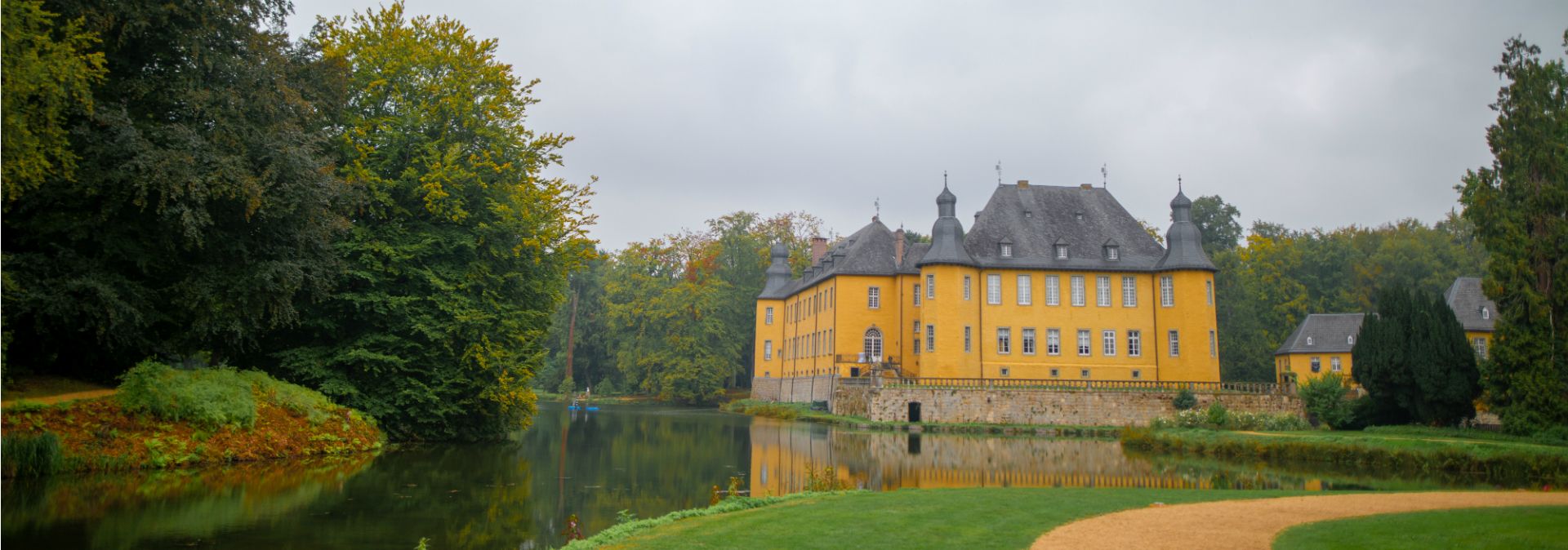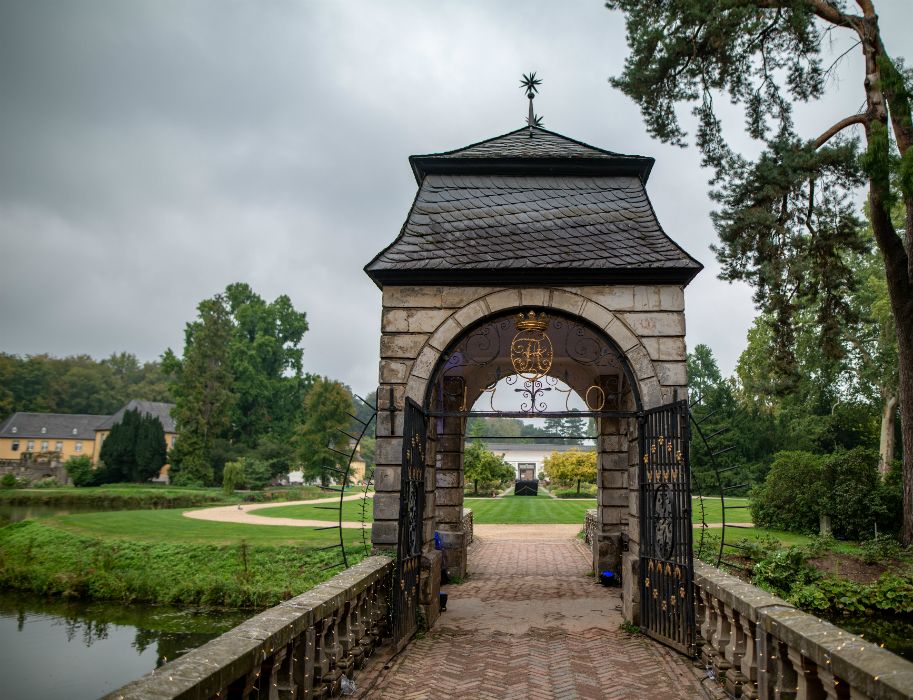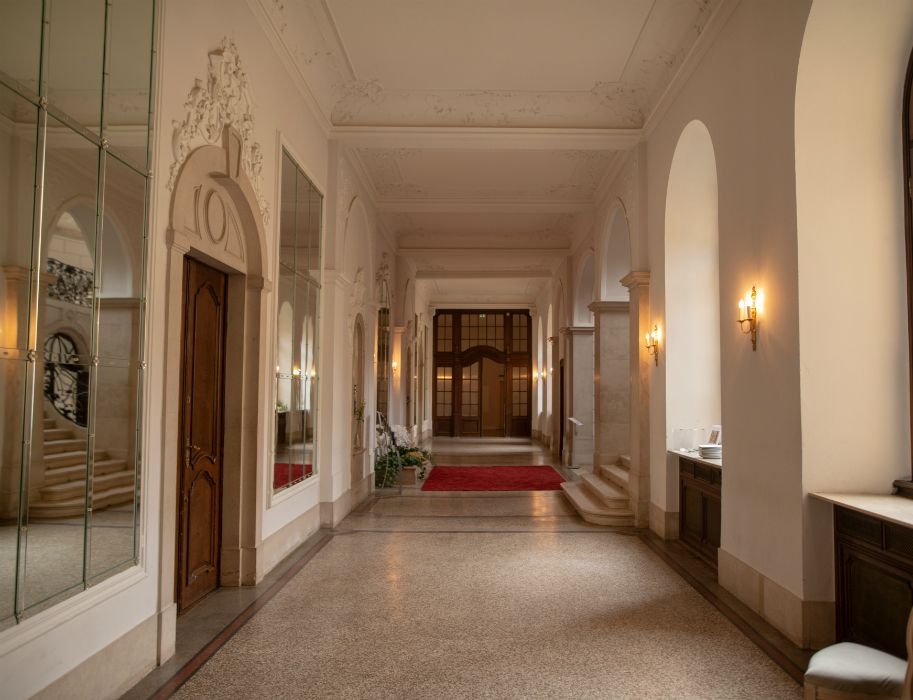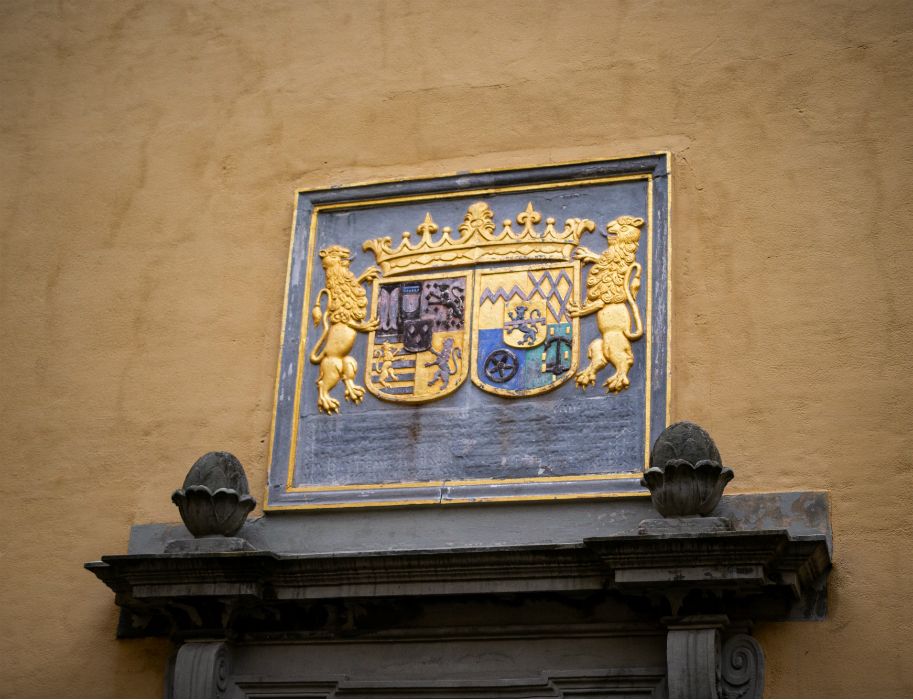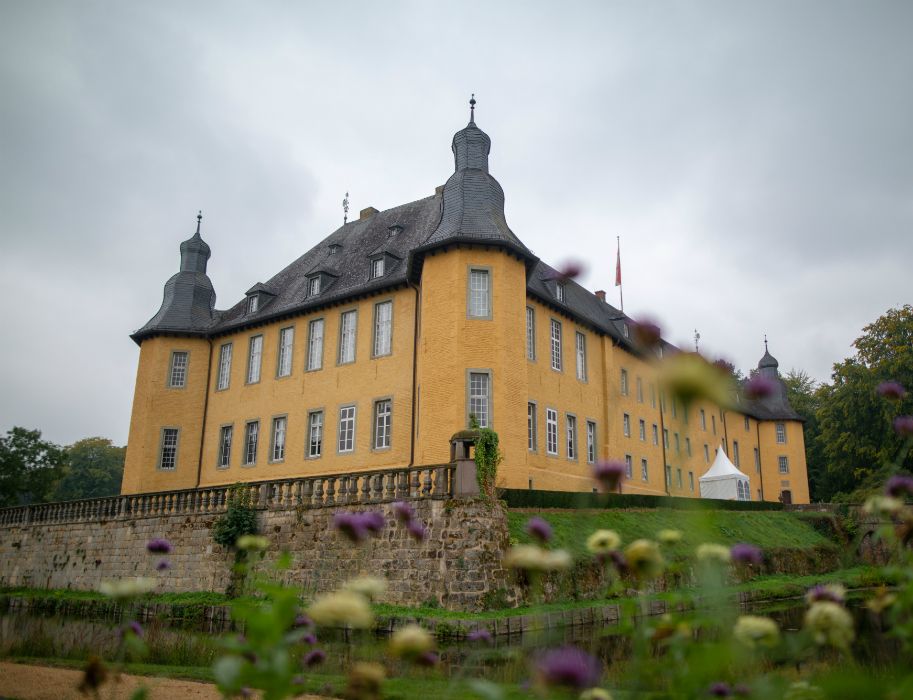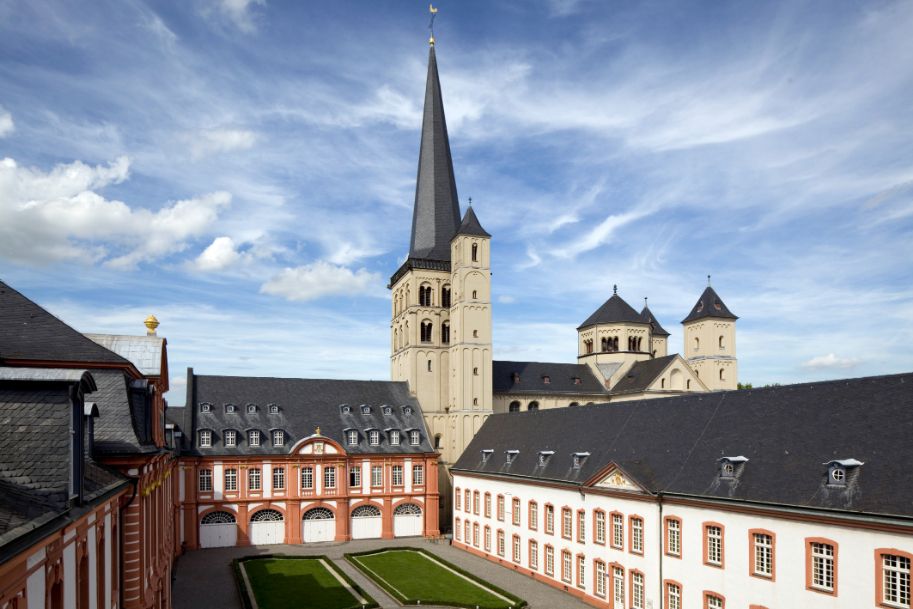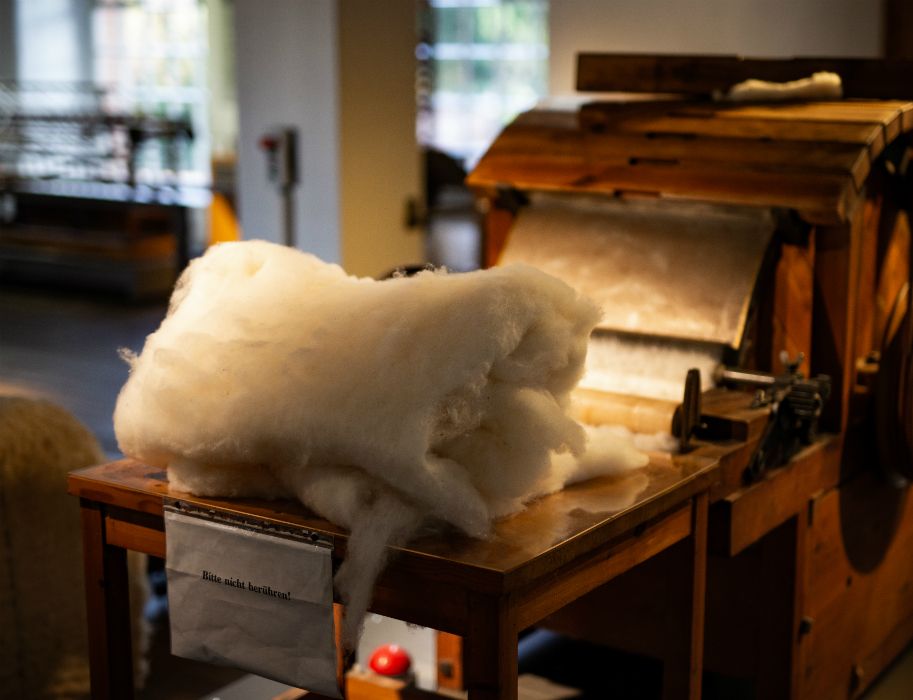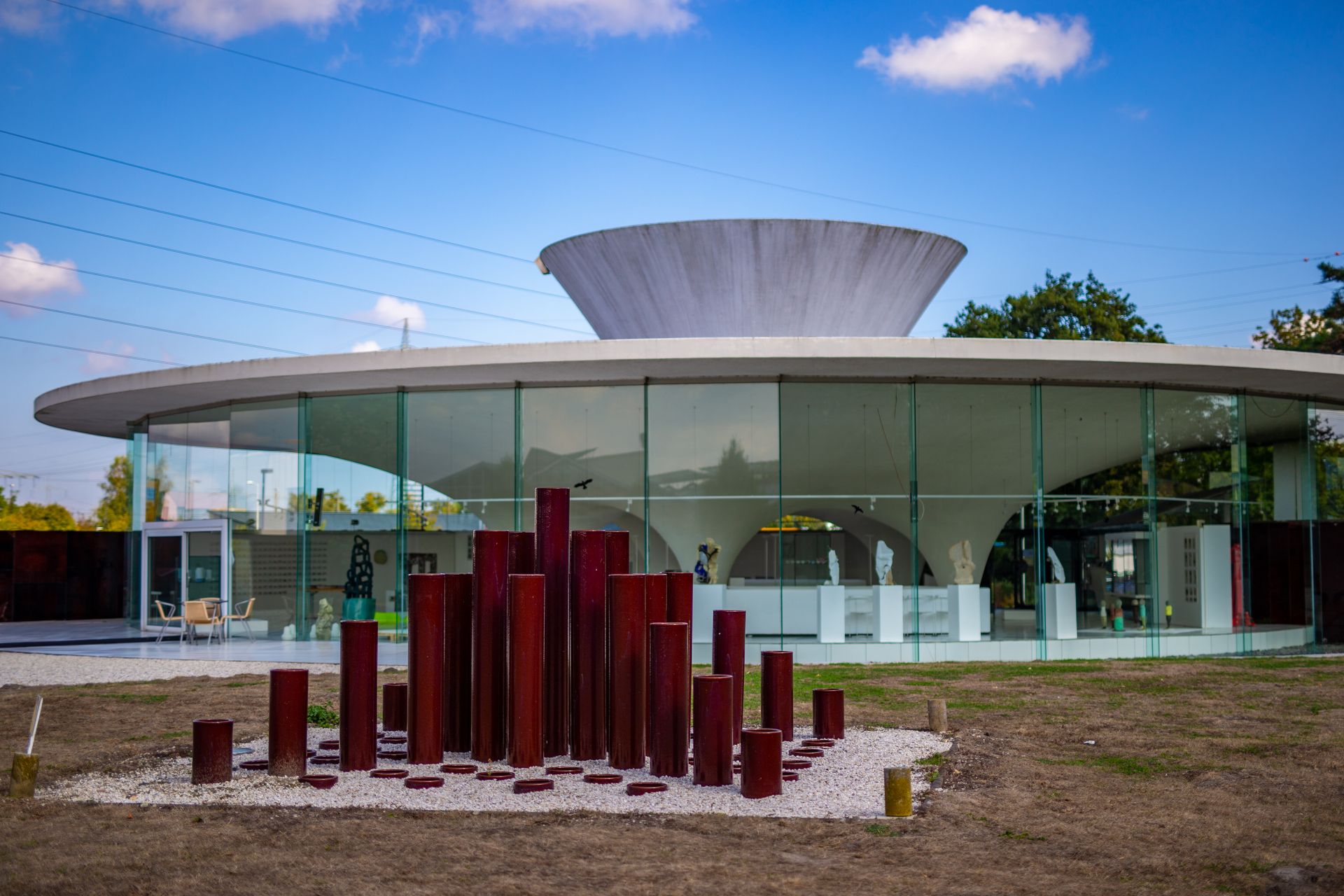The small, secluded area in Jüchen in the Rhine district of Neuss is affectionately known as "Dycker Ländchen": Dyck Castle with its outer baileys and farmyard stretches across four islands in the Kelzenberg stream, surrounded by an English landscape garden. The complex is one of the most culturally and historically significant moated castles in the Rhineland and is now a "Centre for Garden Art and Landscape Culture".
Once a year, Schloss Dyck shines in all its colours. For one week, international light artists illuminate the early baroque princely residence on the Lower Rhine and the neighbouring parks and gardens in a very special light. The "Light Festival" with illuminations accompanied by music, candlelight and video projections throughout the grounds is the annual highlight of the Schloss Dyck Foundation's calendar of events, alongside the regular castle concerts and garden markets.
The foundation took over the estate in 1999 after it had been owned by the Salm-Reifferscheidt-Dyck family for more than 900 years and was able to hold its own against the centres of power of Electoral Cologne, Jülich and Geldern. Since the foundation was established, some of the rooms in the east wing have been open to visitors. In the light-flooded banqueting hall, they can admire a baroque ceiling painting dating back to the construction period around 1656, as well as twelve tableaux by the rococo painter François Rousseau. Precious wall coverings, such as the Chinese silk wallpaper that Emperor Charles IV gave to his daughter Theresa, also bear witness to the former splendour of the court.
Exoticism in the landscaped garden
But it's not just the palace itself that makes the trip to the Rhineland worthwhile. Even when looking out of the windows of the stable courtyard, visitors can see the close connection between the exhibits on display here and the extensive parkland surrounding Schloss Dyck. The lord of the castle, Prince Joseph zu Salm-Reifferscheidt-Dyck, himself a passionate botanist and plant collector, had it laid out as an English landscape garden in the spirit of the Enlightenment at the beginning of the 19th century and brought exotic plants to Germany.
Against the backdrop of the moated castle, visitors stroll along forest paths and shady avenues past majestic giant yews, sequoias, Korean poplars and antler trees as they once did. The garden is a blaze of colour in May, when the sprawling rhododendrons are in full bloom. Under the motto "East meets West", an Asian-Japanese inspired show garden was recently created on the grounds. And those who want to stay a little longer can make use of the shop, the new restaurant in the coach house or stay overnight in the Hotel Schloss Dyck in the middle of the grounds.
Dyck Castle Foundation: zeitgeist of the 17th to 19th centuries
Be inspired by the zeitgeist of the 17th to 19th centuries when you visit the two permanent exhibitions in the east wing of the early Baroque princely residence.
In the small town of Jüchen, south-east of Mönchengladbach, you will find one of the most culturally and historically significant moated castles in the Rhineland: Schloss Dyck.
Be inspired by the zeitgeist of the 17th to 19th centuries when you visit the two permanent exhibitions in the east wing of the early Baroque princely residence.
You will discover many an exotic plant on the subsequent walk through the beautiful English landscape garden and the Asian show garden "East meets West".
During a break on the Mediterranean terrace of the Remise, you can enjoy regional dishes and homemade cakes with a view of the park.
The Museum Insel Hombroich is located very close to Schloss Dyck. As you stroll through the grounds, you will quickly realise how uniquely art, nature and architecture are combined here.
Tip: Fresh local fruit and vegetables are available at the entrance to Schloss Dyck. Depending on the season, you can take asparagus, plums, strawberries and especially apples home with you. Browse through the country shop and "Living & Gardening" to find delicacies, gift ideas and pretty decorative items for your home and garden.
Gastronomic tip: The Café Ambientehof in the historic farmhouse dating back to 1906 is ideal for a refreshment stop before visiting the castle. Guests can enjoy a wonderful breakfast or lunch here. If you would prefer a romantic dinner in the evening, you should stop by the Rittergut Birkhof restaurant. Both restaurants are located in Korschenbroich.
Overnight tip: The former coach house of the castle complex is now a hotel with stylish rooms surrounded by the beautiful park. A short distance away in Korschenbroich is the Gasthaus Stappenberg, which is a wonderful place to stay overnight.
